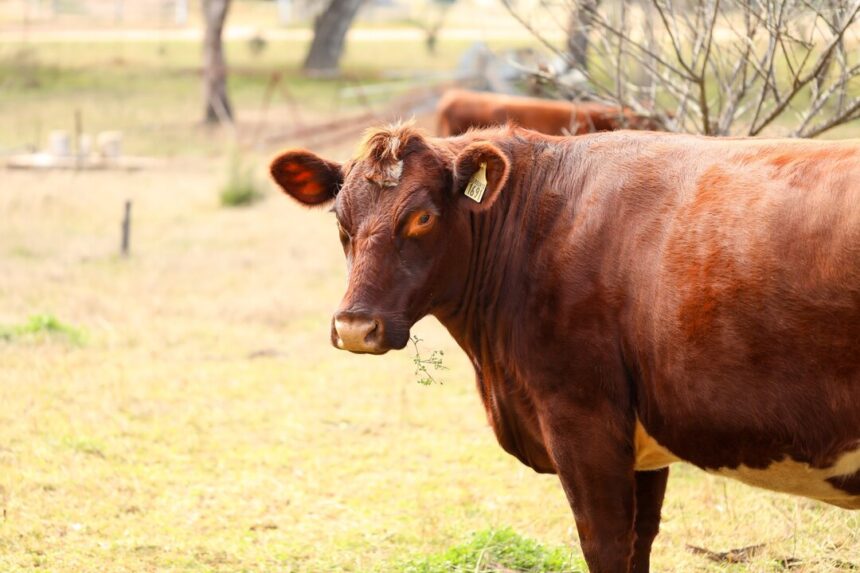Bovelder cattle, a crossbreed between Bonsmara and Nguni cattle, have gained popularity among farmers in South Africa for their adaptability, resilience, and superior meat production qualities. Whether you’re considering starting a Bovelder breeding program or already have a herd, here are 10 important things you should know about breeding and farming Bovelder cattle:
- Crossbreed Advantage: Bovelder cattle are the result of a deliberate crossbreeding program aimed at combining the desirable traits of both Bonsmara and Nguni breeds. As a result, they inherit the hardiness and adaptability of the Nguni, coupled with the superior meat production and growth rate of the Bonsmara.
- Adaptability: Bovelder cattle are well-suited to various climatic and environmental conditions, making them ideal for extensive farming systems. They can thrive in both harsh and more temperate climates, making them versatile for different regions of South Africa.
- Meat Quality: Known for their excellent meat quality, Bovelder carcasses typically yield high-quality cuts with good marbling and tenderness. This makes them highly desirable for both commercial beef production and niche markets.
- Fertility and Reproduction: Bovelder cattle are known for their high fertility rates and good maternal instincts. They typically have relatively easy calving, with few complications, which is advantageous for breeding programs aiming to maintain a productive herd.
- Disease Resistance: Like their Nguni ancestors, Bovelder cattle exhibit strong disease resistance, reducing the need for intensive veterinary interventions and medication. This can result in lower production costs and healthier animals overall.
- Grazing Efficiency: Bovelder cattle have a natural inclination towards grazing, making them efficient converters of forage into meat. Their ability to thrive on natural pasture reduces the need for supplementary feeding, further lowering production costs.
- Crossbreeding Potential: Bovelder cattle are often used in crossbreeding programs to improve the genetics of other cattle breeds. Their adaptability and desirable traits make them valuable contributors to genetic improvement initiatives in the South African beef industry.
- Management Practices: Effective management practices are essential for maximizing the productivity and profitability of Bovelder herds. This includes proper nutrition, pasture management, disease prevention, and routine health monitoring.
- Market Demand: With their superior meat quality and adaptability, Bovelder cattle are in high demand in the South African beef market. Farmers who breed and raise Bovelder cattle can capitalize on this demand by supplying quality animals to both local and export markets.
- Breeding Programs: To ensure the continued success of Bovelder farming operations, farmers should implement structured breeding programs aimed at maintaining and improving the desired traits of the breed. This may involve selective breeding, genetic testing, and collaboration with breed societies and research institutions.
By understanding these key aspects of breeding and farming Bovelder cattle in South Africa, farmers can make informed decisions to optimize their operations and contribute to the sustainable growth of the beef industry. With their adaptability, resilience, and superior meat production qualities, Bovelder cattle are poised to remain a valuable asset to the agricultural sector for years to come.
Join 'Farmers Mag' WhatsApp Channel
Get the latest Farming news and tips delivered straight to your WhatsApp
CLICK HERE TO JOIN






